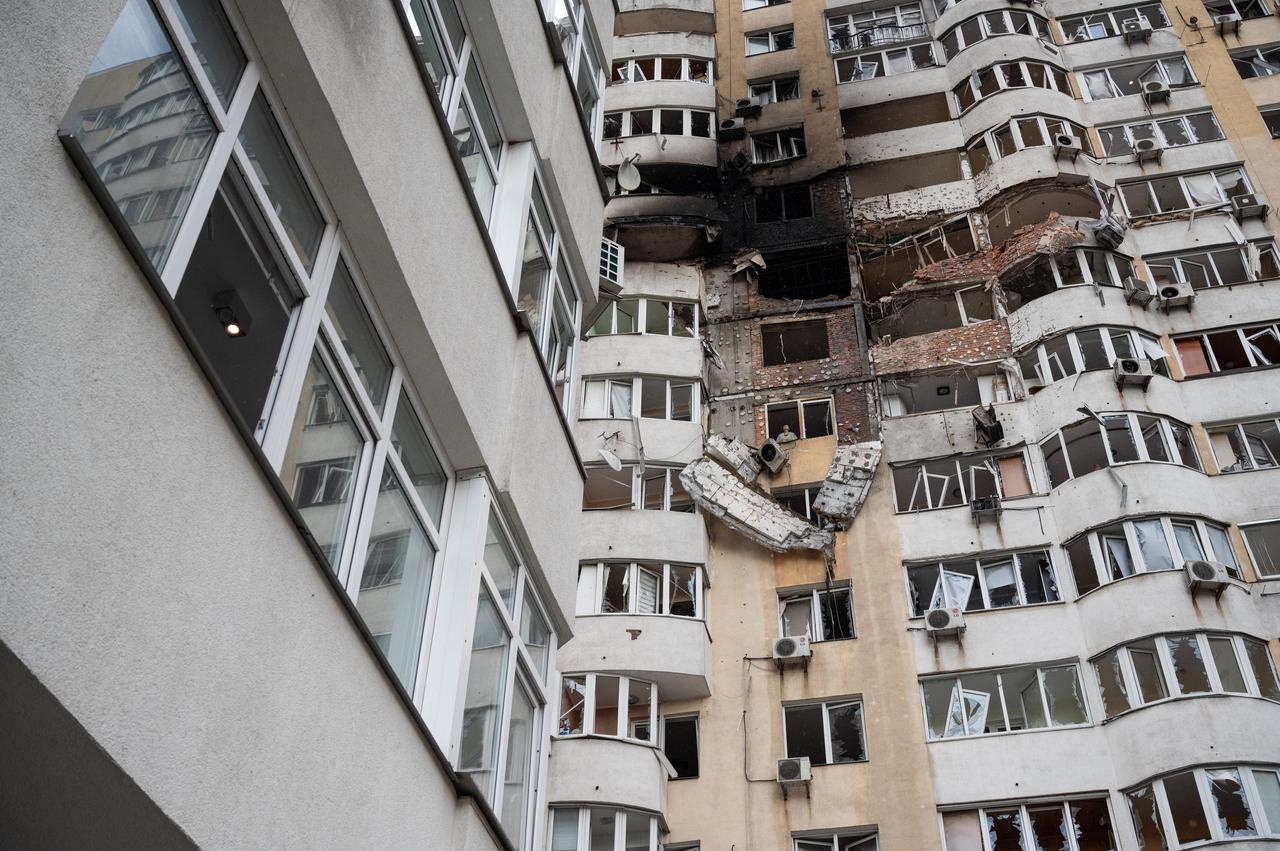
The United States believes Russian President Vladimir Putin's threatened retaliation against Ukraine over last weekend's drone attack has not happened yet in earnest and is likely to be a significant, multi-pronged strike, U.S. officials told Reuters.
The timing of the full Russian response was unclear, with one source saying it was expected within days.
A second U.S. official said the retaliation was likely to include different kinds of air capabilities, including missiles and drones.
The officials spoke on condition of anonymity and did not detail Russia's expected targets nor elaborate on intelligence matters.
The first official said Moscow's attack would be "asymmetrical," meaning that its approach and targeting would not mirror Ukraine's strike last weekend against Russian warplanes.
Russia launched an intense missile and drone barrage at Ukrainian capital Kyiv on Friday, with Russia's Defense Ministry saying the strike on military and military-related targets was in response to Ukrainian "terrorist acts" against Russia. However, U.S. officials believe the complete Russian response is yet to come.
A Western diplomatic source said that while Russia's response may have started, it would likely intensify with strikes against symbolic Ukrainian targets like government buildings in an effort to send a clear message to Kyiv.
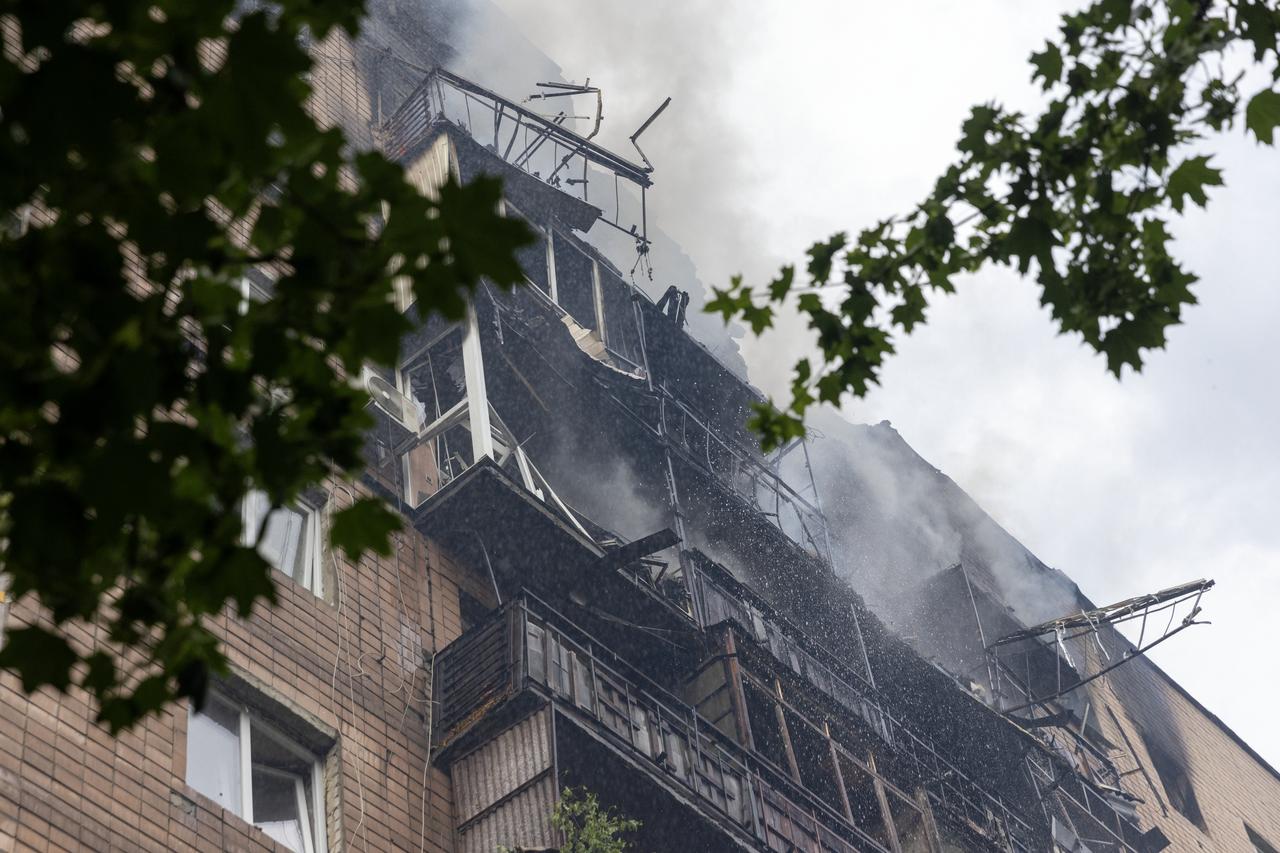
Another senior Western diplomat anticipated a further devastating assault by Moscow.
"It will be huge, vicious and unrelenting," the diplomat said. "But the Ukrainians are brave people."
Michael Kofman, a Russia expert at the Carnegie Endowment for International Peace, said he expected Moscow might seek to punish Ukraine's domestic security agency, the SBU, for its role in last weekend's assault.
"Most likely, they will attempt to retaliate against (SBU) headquarters or other regional intelligence administration buildings," Kofman said, adding Russia could also target Ukrainian defense manufacturing centers.
Kofman suggested Russia's options for retaliation may be limited as it is already throwing significant military might at Ukraine.
"In general, Russia's ability to substantially escalate strikes from what they are already doing—and attempting to do over the past month - is quite constrained," he said.
To send a message, Russia could employ intermediate-range ballistic missiles for the attack, Kofman noted.
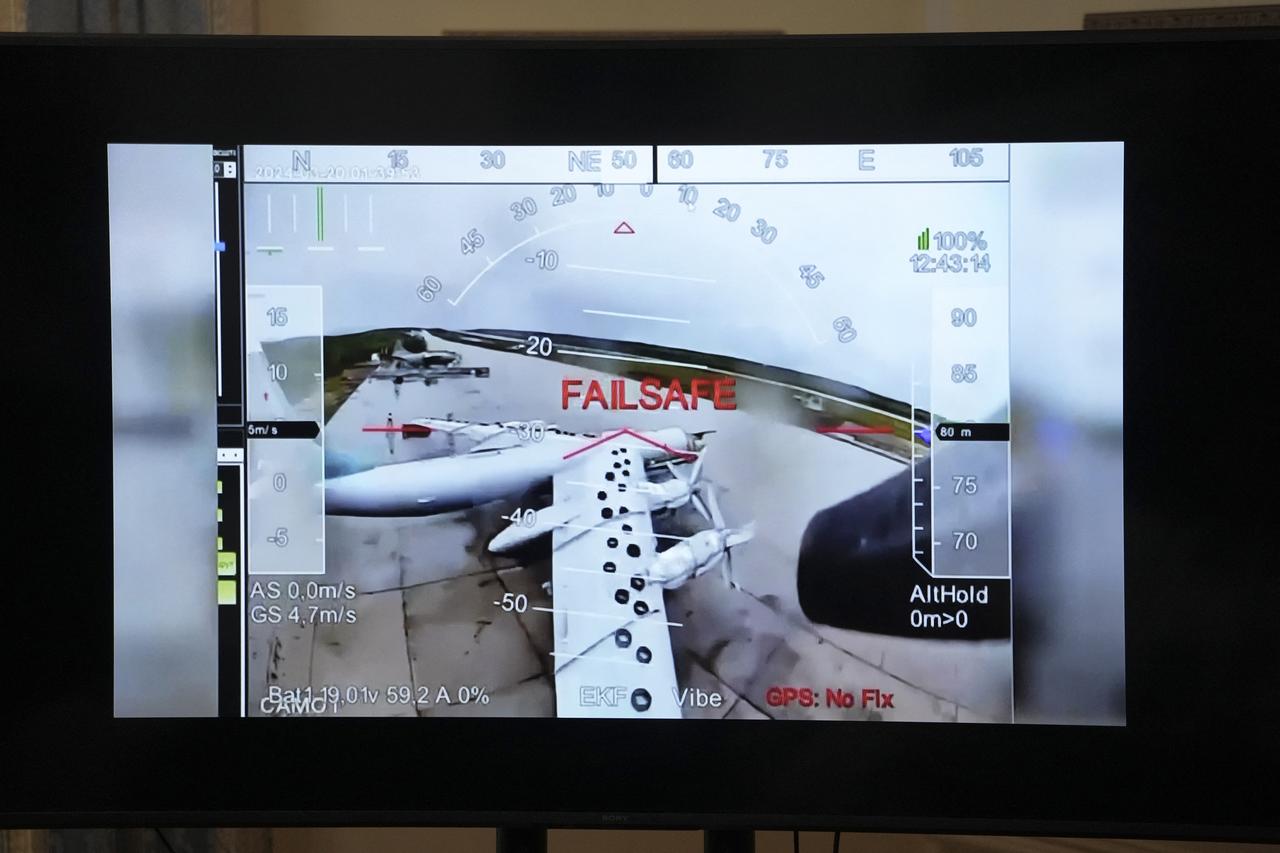
Kyiv says Sunday's attack employed 117 unmanned aerial vehicles launched deep from within Russian territory in an operation code-named "Spider Web."
The United States assesses that up to 20 warplanes were hit—around half the number estimated by Ukrainian President Volodymyr Zelenskyy—and around 10 were destroyed.
The Russian government on Thursday denied that any planes were destroyed and said the damage would be repaired, but Russian military bloggers have spoken of loss or serious damage to about a dozen planes, including those capable of carrying nuclear weapons.
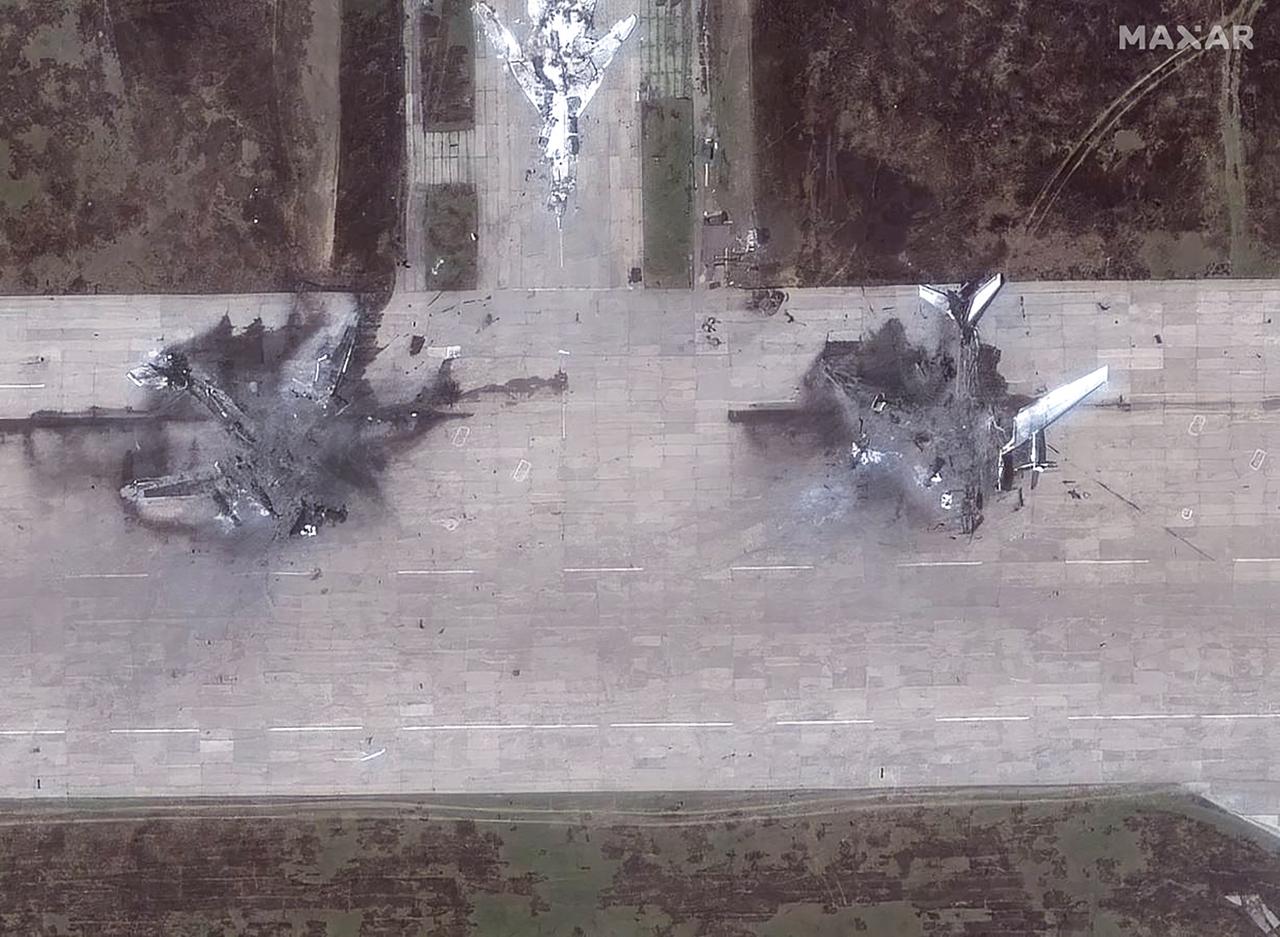
German Major General Christian Freuding said the Ukrainian drone attack likely damaged around 10% of Russia's strategic bomber fleet.
"According to our assessment, more than a dozen aircraft were damaged, TU-95 and TU-22 strategic bombers as well as A-50 surveillance planes," Freuding said in a YouTube podcast.
Freuding said the affected A-50s, which function similarly to NATO's AWACS planes, were likely non-operational when hit.
"We believe that they can no longer be used for spare parts. This is a loss, as only a handful of these aircraft exist," he said. "As for the long-range bomber fleet, 10% of it has been damaged in the attack, according to our assessment."
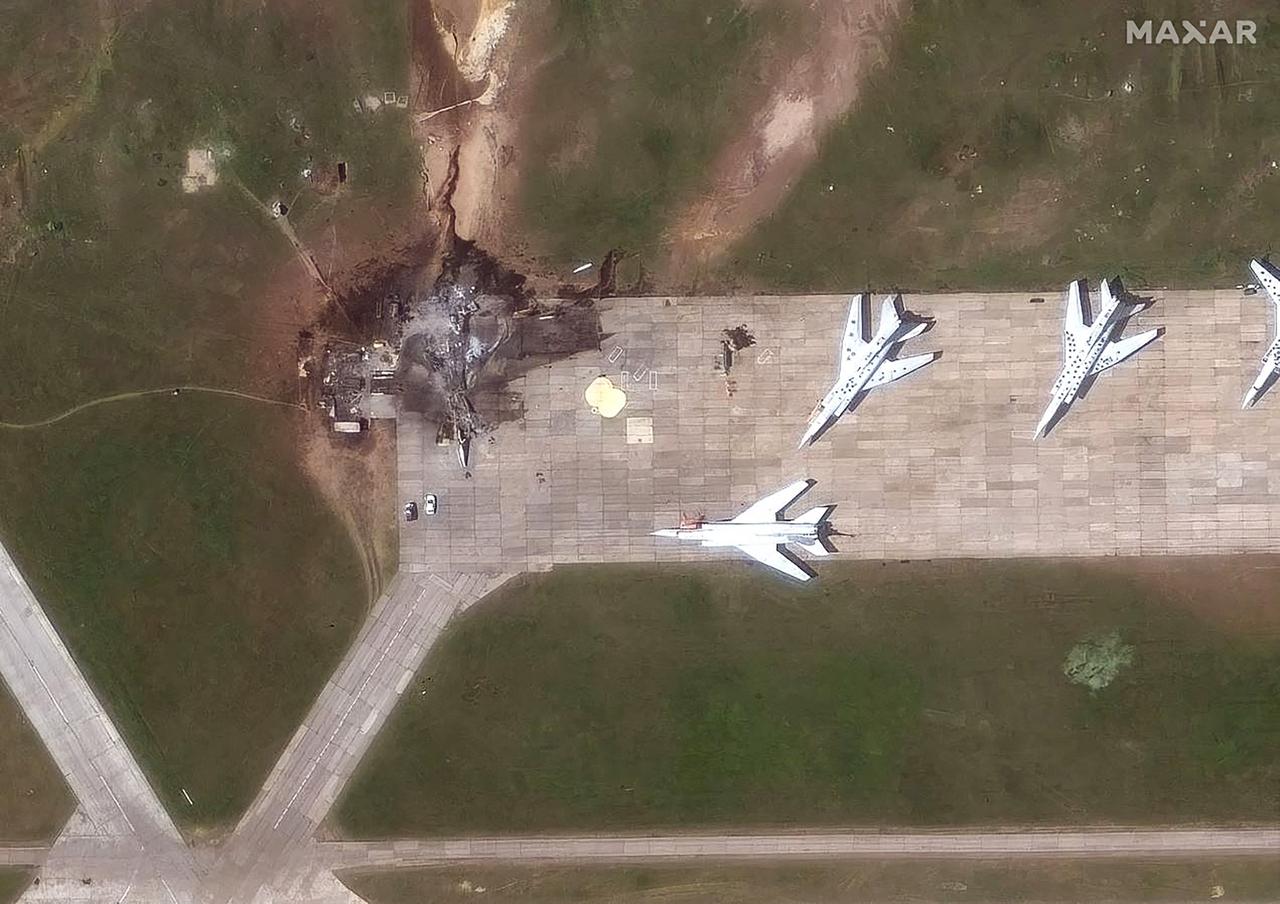
Russian President Putin told President Donald Trump in a telephone conversation Wednesday that Moscow would have to respond to the attack, Trump said in a social media post.
Trump later told reporters that "it's probably not going to be pretty."
"I don't like it. I said, 'Don't do it. You shouldn't do it. You should stop it," Trump said of his conversation with Putin. "But, again, there's a lot of hatred."
The strikes, prepared over 18 months and conducted by drones smuggled close to the bases in trucks, dealt a powerful symbolic blow to Russia, which throughout the Ukraine war has frequently reminded the world of its nuclear might.
Despite the losses, Freuding does not see any immediate reduction of Russian strikes against Ukraine, noting that Moscow still retains 90% of its strategic bombers.